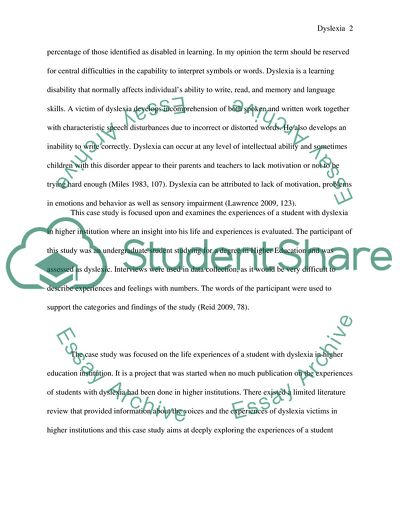Cite this document
(Experience of Students with Dyslexia Case Study Example | Topics and Well Written Essays - 2250 words, n.d.)
Experience of Students with Dyslexia Case Study Example | Topics and Well Written Essays - 2250 words. https://studentshare.org/education/1871345-case-study-dyslexia
Experience of Students with Dyslexia Case Study Example | Topics and Well Written Essays - 2250 words. https://studentshare.org/education/1871345-case-study-dyslexia
(Experience of Students With Dyslexia Case Study Example | Topics and Well Written Essays - 2250 Words)
Experience of Students With Dyslexia Case Study Example | Topics and Well Written Essays - 2250 Words. https://studentshare.org/education/1871345-case-study-dyslexia.
Experience of Students With Dyslexia Case Study Example | Topics and Well Written Essays - 2250 Words. https://studentshare.org/education/1871345-case-study-dyslexia.
“Experience of Students With Dyslexia Case Study Example | Topics and Well Written Essays - 2250 Words”. https://studentshare.org/education/1871345-case-study-dyslexia.


